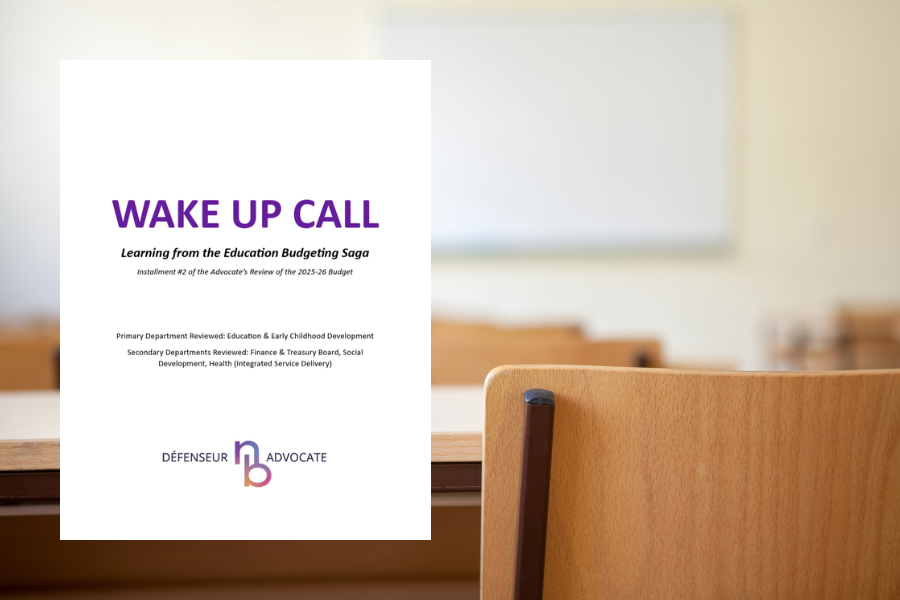
The New Brunswick Advocate has released this report, WAKE UP CALL: Learning from the Education Budgeting Saga.
The Advocate shines an important and necessary light on the current stresses on our education system.
Our province has one of the strongest inclusive education mandates nationally, with the introduction of Policy 322 (Inclusive Education) in 2013. This policy upholds education as a fundamental human right and establishes the framework to ensure New Brunswick’s public schools are ready to welcome and support every student.
However, our education system is comparatively significantly underfunded, which the Advocate points out in the report. He also highlights something we have been advocating for: a system that needs to be less reactive and more proactive.
A clear example of this is the concerning rise in the number of partial school days for students who struggle with challenging behaviours. This is something that the Advocate’s office has deemed illegal.
The Department of Education and Early Childhood Development, as well as the Anglophone and Francophone School Districts, need to allocate funding to schools based on real student needs and demographics.
Adequate human resources – Teachers, Educational Assistants, Speech Language Pathologists – and funds should be distributed appropriately to enable educators to plan proactively, based on their students’ unique needs. The increased use of seclusion and restraints, along with partial days, reflects a system that is operating reactively.
Rather than reacting to crises as they arise, we need to train properly and resource schools to support timely planning for students. Educators, like students, need the proper tools to succeed.
For example, there are substantial inconsistencies in how educators and families can access integrated service delivery for the students who require this, especially now that teams have been disbanded. Often, supports are only provided after significant data has been collected following a crisis, leaving students without the assessments or plans required for meaningful inclusion. Again, this is reactive.
In fact, many students began this school year on partial day plans because the planning and assessments to ensure a successful year have not happened. This cannot continue.
Education is a human right. It’s the law.
With this in mind, we need:
- More resources, intentional investment, and a commitment to earlier interventions that provide the right support at the right time;
- To continue to support our educators to help them do what they do best;
- To take a person-centred approach that puts the needs of the student at the forefront of decision-making;
- and
- To learn from the many classrooms and schools in this province where inclusion is embraced and students are thriving.
These successes need to be shared and become standard practice, instead of best practice.
– Jake Reid
Executive Director